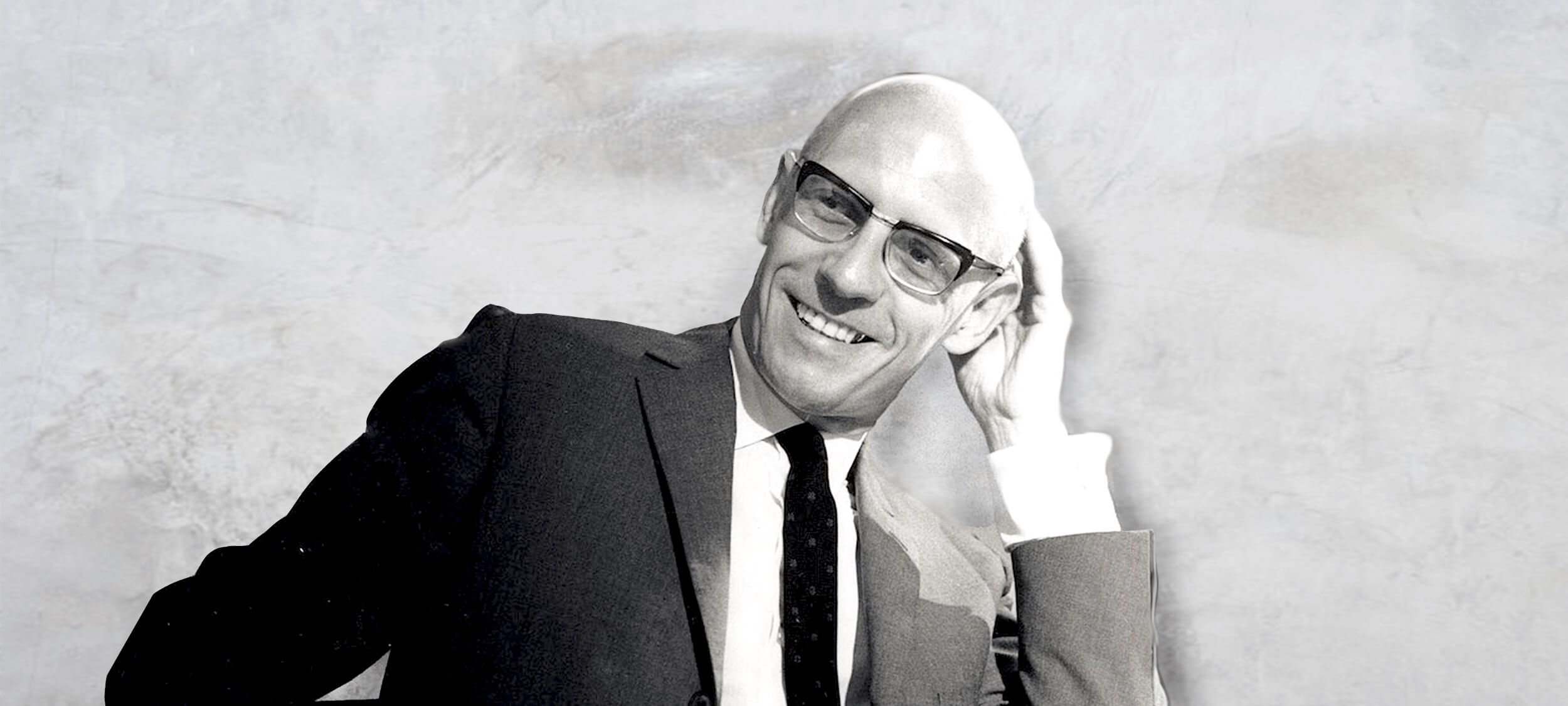The 6 ways corporate values fail

The 6 ways corporate values fail
Opinion + AnalysisBusiness + Leadership
BY The Ethics Centre 14 AUG 2017
The Ethics Centre works with companies and organisations of all shapes and sizes. We know how different a bank with 40,000 employees is to a small non-profit or a university, or even to a division of the military. Despite that, the same issues arise in business time and again. A failure to live up to corporate values.
One of the first things we do when we start working with an organisation is helping them to define, refine, or re-build their purpose, values, and principles – what we would call an ethical framework. A strong ethical framework is a North Star for all people and all decisions within an organisation.
We frequently encounter companies that have values in place – but they’re not being “lived.” They’re either entirely unknown, or else they are not being used as a reference point. Rarely are they being used to their full potential.
In the course of our work, we’ve uncovered six main ways that corporate values fail to stick.
-
Values without purpose or principles
We often encounter a lack of understanding of the way that values, principles and purpose inter-relate. They are fundamentally different and they work best together. Purpose is your “why” (Why does your organisation exist?). Values describe what is good. Principles describe what is right. When making a decision we must ask:
- Does this decision help us achieve our purpose?
- Are we upholding our values in this decision? Is this what we consider to be good?
- Is this decision aligned with what we consider to be right? Is it the right thing to do?
The point about all of this is that we are required to think before we act. Without an ethical framework of purpose, values, and principles, we are left with nothing but a list of rules and behavioural directives. And when we are simply following rules or habits, the critical thinking needed for ethical decision making is removed.
-
Leaders failing to lead on values
Ethical frameworks don’t have to start with the CEO or board. It’s been our experience that the best frameworks arise out of consultation with all levels of the organisation. But it is certainly true that it’s the job of all leaders to talk about the values, create a narrative that demonstrates true commitment, and exemplify them in their own behaviour.
This is partly a communication challenge: leaders have to explain the values and tell the story of how they are lived within the organisation. They need to explain how their decisions reflect the values.
But it’s also important the organisation and its stakeholders can see the values being applied constantly and consistently. When leaders fail to do this, the hypocrisy will be noticed and called out – often with disastrous and costly consequences. Hypocrisy over values can destroy the credibility an organisation.
-
Designing for a marketing purpose
No offence to marketers, but they definitely shouldn’t be the sole drivers of your ethical framework. In this scenario, the marketing team have identified the need to communicate a particular set of “brand values” to their customers, so they craft uplifting slogans that give the appearance of an ethical framework. Sadly, these values are a facade. They are window dressing designed to sell a product. Managers and staff either don’t know them, can’t relate to them, or don’t know how to use them in decisions.
-
Confusing values with behaviours
The danger of HR being the sole architects of your ethical framework is that they will probably build something based on behaviours. Behaviour-based statements tend to describe the desired “good” behaviours and call out the undesirable “bad” ones. They are displayed in posters on the kitchen wall – and the only time they are really discussed is in performance reviews, where they become a stage-gate for a bonus. The employees may find the behaviours helpful in interacting with colleagues within and across teams, but they won’t be very helpful when applied to the big day to day decisions.
-
Values not embedded within your systems and processes
The beauty of an ethical framework is that it can help guide every decision that your managers make. This includes major corporate manoeuvres and daily interactions with customers and other stakeholders. But this will only work if your values and principles are embedded in your policies, systems, and processes.
It’s easy for these frameworks to become misaligned. If you uphold corporate values like trust, integrity, and customer service whilst imposing ambitious KPIs that prioritise profit growth above all else, then you will have a confused workforce with no idea what to do. When systems are in conflict with values, bad decisions can be made by well-meaning people.
-
People failing to talk about corporate values
You can tell a purpose-led organisation from any other because their values and principles are on display, every day. They’re not just a page on the website, but the subject of daily conversation. They come up time and again in company presentations, in meetings and in micro-interactions. In times of change or disruption, they’re the only way to navigate successfully.
Your people need not only to know what the values are and what they mean; they also need to understand how to communicate with them and apply them to everyday decisions. And perhaps most importantly, you need to foster a culture in which a failure to live the values is explicitly called out. You know a company truly has a strong ethical framework when even the most powerful executive is held to account for not living the values.
Corporate values are much more than mere slogans or behaviours. They are an important and fundamental element in decision making. Organisations are shaped by the choices their individual employees and directors make. And this in itself shapes the world around us.
A famous Australian corporate leader once said that companies are successful when they “make more good choices than bad choices.” If values represent what is good then we know where to look to shape good choices.
Ethics in your inbox.
Get the latest inspiration, intelligence, events & more.
By signing up you agree to our privacy policy
You might be interested in…
Opinion + Analysis
Business + Leadership
Has passivity contributed to the rise of corrupt lawyers?
Opinion + Analysis
Business + Leadership
Our economy needs Australians to trust more. How should we do it?
Opinion + Analysis
Business + Leadership
Activist CEO’s. Is it any of your business?
Opinion + Analysis
Business + Leadership, Health + Wellbeing
The super loophole being exploited by the gig economy
BY The Ethics Centre
The Ethics Centre is a not-for-profit organisation developing innovative programs, services and experiences, designed to bring ethics to the centre of professional and personal life.
The rise of Artificial Intelligence and its impact on our future

The rise of Artificial Intelligence and its impact on our future
Opinion + AnalysisScience + Technology
BY Simon Longstaff The Ethics Centre 28 JUL 2017
It’s all fun and games until robots actually take over our jobs. AI is in our future and is fast approaching. Simon Longstaff considers how we make that tomorrow good.
Way back in 1950, the great computer scientist, Alan Turing, published in Mind a paper that set a test for determining whether or not a machine possesses ‘artificial intelligence’.
In essence, the Turing Test is passed if a human communicating with others by text cannot tell the difference between a human response and one produced by the machine. The important thing to note about Turing’s test is that he does not try to prove whether or not machines can ‘think’ as humans do – just whether or not they can successfully imitate the outcomes of human thinking.
Although the makers of a chat-bot called Eugene Goostman claimed it passed the test (by masquerading as a 13 year old boy) general opinion is the bot was designed to ‘game’ the system by using the boy’s apparent young age as a plausible excuse for the mistakes it made in the course of the test. Even so, the development of computers continues apace – with ‘expert systems’ and robots predicted to displace humans in a variety of occupations ranging from the legal profession to taxi drivers and miners.
All of this is causing considerable anxiety – not unlike that felt by people whose lives were upended by the development of steam power and mass production during the first Industrial Revolution. Back then people could more or less understand what was going on. The machines (and how they worked) were fairly obvious.
These days the inner workings of our advanced machines are far more mysterious. Coal or timber burning in a furnace is tactile and observable. But what exactly is an electron? How do you see it? And a Q-bit?
Add to this the extraordinary power of modern machines and it is not surprising that some people (including the likes of Stephen Hawking) are expressing caution about the potential threat our own technologies present, not only to our lifestyles, but to human existence. Of course, not everybody is so pessimistic.
However, the key thing to note here is we have choices to make about how we develop our technology. The future is not inevitable – we make it. And that is where ethics comes in.
This is one small example of how our choices matter. At first glance, let’s imagine how wonderful it would be if we could build batteries that never need recharging. That might seem to solve a raft of problems.
However, as Raja Jurdak and Brano Kusy observe in The Conversation, there may be ‘downsides’ to consider, “creating indefinitely powered devices that can sense, think, and act moves us closer to creating artificial life forms.
Couple that with an ability to reproduce through 3D printing, for example, and to learn their own program code, and you get most of the essential components for creating a self-sustaining species of machines.” Dystopian images of the Terminator come to mind.
However, back to Turing and his test. As noted above, computers that pass his test will not necessarily be thinking. Instead, they will be imitating what it means to be a thinking human being. This may be a crucial difference.
What will we make of a medi-bot that tells us we have cancer and tries to comfort us – but that we know can have no authentic sense of its (or our) mortality? No matter how good it is at imitating sympathy, won’t the machine’s lack of genuine understanding and compassion lead us to discount the worth of its ‘support’?
Then there is the fundamental problem at the heart of the ethical life lived by human beings. Our form of being is endowed with the capacity to make conscious, ethical choices in conditions of fundamental uncertainty. It is our lot to be faced with genuine ethical dilemmas in which there is, in principle, no ‘right’ answer.
This is because values like truth and compassion can be held with equal ‘weight’ and yet pull us in opposite directions. As humans we know what it means to make a responsible decision – even in the face of such radical uncertainty. And we do it all the time.
What will a machine do when there is no right answer? Will it do the equivalent to flipping a coin? Will it be indifferent to the answer it gets and act on the results of chance alone? Will that ever be good enough for us and the world we inhabit?
Ethics in your inbox.
Get the latest inspiration, intelligence, events & more.
By signing up you agree to our privacy policy
You might be interested in…
Opinion + Analysis
Business + Leadership, Politics + Human Rights, Science + Technology
Not too late: regaining control of your data
Opinion + Analysis
Science + Technology, Society + Culture
Where did the wonder go – and can AI help us find it?
Opinion + Analysis
Health + Wellbeing, Relationships, Science + Technology
Periods and vaccines: Teaching women to listen to their bodies
Opinion + Analysis
Science + Technology
We are turning into subscription slaves
BY Simon Longstaff
Simon Longstaff began his working life on Groote Eylandt in the Northern Territory of Australia. He is proud of his kinship ties to the Anindilyakwa people. After a period studying law in Sydney and teaching in Tasmania, he pursued postgraduate studies as a Member of Magdalene College, Cambridge. In 1991, Simon commenced his work as the first Executive Director of The Ethics Centre. In 2013, he was made an officer of the Order of Australia (AO) for “distinguished service to the community through the promotion of ethical standards in governance and business, to improving corporate responsibility, and to philosophy.” Simon is an Adjunct Professor of the Australian Graduate School of Management at UNSW, a Fellow of CPA Australia, the Royal Society of NSW and the Australian Risk Policy Institute.
BY The Ethics Centre
The Ethics Centre is a not-for-profit organisation developing innovative programs, services and experiences, designed to bring ethics to the centre of professional and personal life.
The ethics of smacking children

The ethics of smacking children
Opinion + AnalysisHealth + WellbeingRelationships
BY Matthew Beard The Ethics Centre 20 JUL 2017
Every generation likes to reflect on the way they were disciplined. They’re like old war stories, told with the fondness that comes with time and age.
I do the same. I was smacked as a child. For a time, I was convinced my backside was made of something other than flesh, such was its power to shatter wooden spoons. Weirdly, it’s something of a point of pride these days.
When it comes to smacking, it’s not just nostalgic to reminisce like this. It shapes our thoughts about whether smacking is ethical or not. “I was smacked and I turned out fine, so it must be OK.”
But that’s bad logic. The argument is a logical fallacy called “survivorship bias”.
Survivorship bias happens when we focus on those who made it through a difficult process without considering those who didn’t. The logic of “I was smacked and turned out OK” is the same as “I was tortured and I turned out OK”, but the fact you survived it doesn’t make it ethical.
When thinking about smacking, we need some better arguments. Here are a few things to consider.
Smacking is a show of force
With the exception of the grumpy nun from The Blues Brothers known as The Penguin, smacking only works on children who are too small to defend themselves.
Acknowledging this power imbalance changes how some people feel about the act of smacking. Philosopher and parent Damon Young writes, “deliberately striking [kids], whether coolly or in a rage, takes advantage of their weakness”.
Young thinks this is a question of character, writing “I don’t want to be the kind of man who hurts a smaller, weaker person”. Do you want to be the kind of parent who relies on physical power to command discipline, respect or obedience from your child?
Political philosopher Niccolo Macchiavelli said it was “much safer to be feared than loved when one must be dispensed with”. He thought fear was the most effective way to prevent people from betraying you because it creates “a dread of punishment which never fails”.
But Machiavelli had despotic political leaders in mind, not parents.
Effectiveness and ethics aren’t the same
Let’s go back to Macchiavelli for a second. He wasn’t interested in how to rule ethically, he wanted to know how to rule effectively. Sometimes it’s tempting to approach parenting the same way.
‘What’s the best way to get my child to sleep?’ ‘How can I stop him from biting me?’ When we’re bleary-eyed and desperately Googling for answers at three in the morning, we’re looking for whatever will get us the result we want. The means are less important to us than the ends.
Desperation doesn’t make for good ethical judgement. Telling your bub bedtime stories about the monsters who eat naughty children until they’re sobbing in fear might be an effective way to get them to toe the line but it’s not going to win you any parenting awards.
Parenting expert Barbara Coloroso suggests a slight modification to the ‘if it works, do it’ mentality. She suggests, “if it works and leaves a child’s and my own dignity intact, do it”. This is a crucial distinction – the dignity of both children and parents serves as a line in the sand against brute efficiency.
This doesn’t necessarily rule smacking out. Pope Francis himself thought smacking could be a dignified way of teaching kids about ethics.
Talking about a dad who sometimes smacks his kids – but never in the face – the Pope said, “How beautiful. He knows the sense of dignity. He has to punish them but does it justly and moves on.”
As a counter example, it’s worth wondering how dignified the Pope would feel being bent over someone’s knee.
What are you really communicating?
Some people defend smacking as a way of communicating with a child when words won’t do the job. They suggest that in the midst of a meltdown, it’s hard to reason with a child, but if a quick ‘love tap’ gets them to listen to you, it might allow for a constructive conversation.
These folks might enjoy reading Hannah Arendt. The 20th century philosopher thought violence was an effective form of communication to help moderate, reasonable voices to be heard. However, Arendt’s support for violence comes with a warning: the use of violence risks its being legitimised as a form of communication in a community (or family). Once violence becomes the talk of the town, everyone can be tempted to start speaking it.
Arendt concluded, “the practice of violence, like all action, changes the world, but the most probable change is a more violent world”.
If the same is true of families, it might be worth thinking twice before talking with the hand.
Ethics in your inbox.
Get the latest inspiration, intelligence, events & more.
By signing up you agree to our privacy policy
You might be interested in…
Opinion + Analysis
Relationships
Only love deserves loyalty, not countries or ideologies
Opinion + Analysis
Relationships
Our desire for reality: What OnlyFans says about sexual fantasy
Opinion + Analysis
Relationships
Parenting philosophy: Stop praising mediocrity
Opinion + Analysis
Relationships
What is the definition of Free Will ethics?
BY Matthew Beard
Matt is a moral philosopher with a background in applied and military ethics. In 2016, Matt won the Australasian Association of Philosophy prize for media engagement. Formerly a fellow at The Ethics Centre, Matt is currently host on ABC’s Short & Curly podcast and the Vincent Fairfax Fellowship Program Director.
BY The Ethics Centre
The Ethics Centre is a not-for-profit organisation developing innovative programs, services and experiences, designed to bring ethics to the centre of professional and personal life.
Office flings and firings

Office flings and firings
Opinion + AnalysisBusiness + LeadershipHealth + WellbeingRelationships
BY Dennis Gentilin The Ethics Centre 20 JUL 2017
If you heard the phrase “cheaters never prosper” talked about at AFL headquarters, you’d assume they were talking about performance enhancing drugs, salary cap breaches or breaking the rules to win a game.
This week, as AFL CEO Gillon McLachlan announced the resignations of two senior officials, Richard Simkiss and Simon Lethlean, after they admitted to adulterous affairs with junior staff, the phrase took on a whole new meaning.
The reaction to McLachlan’s decision has been mixed. Some have applauded the move as a strong defence of the AFL’s culture and values. Others have suggested the AFL has gone too far. Writing in The Australian Financial Review, Josh Bornstein suggested office affairs that don’t involve “harassment or stalking or bullying” should “not be grounds for loss of employment”.
Particulars of the AFL case aside, this view is misguided. It conflates ethics and the law and demonstrates a lack of appreciation for the important role values and principles play in corporate governance. Just because something is legal doesn’t mean it’s ethical.
Yes, the law should play a role in guiding an organisation when developing an ethical framework. But it is far from sufficient. Arguably, the best test of an organisation’s ethics will arise when they’re operating in areas not covered by the law.
When a power imbalance could potentially cause harm to the more vulnerable party, then we have good reason to question that conduct.
With that said, what should we make of the AFL’s decision? When announcing the resignation of the two senior officials, McLachlan spoke to his organisation’s values. He stated that he would like to lead “a professional organisation based on integrity, respect, care for each other, and responsibility”.
An organisation’s values are affirmed by the actions, choices, and decisions that are made and condoned by its people, especially its most senior leaders. This also was not lost on McLachlan. “I expect that executives are role models and set a standard of behaviour for the rest of the organisation,” he said. “They are judged, as they should be, to a higher standard”.
The response by the Seven West Media board to revelations that their CEO Tim Worner had an adulterous affair with executive assistant Amber Harrison was a little more benign. They engaged a private law firm to undertake an independent investigation into a variety of allegations made by Harrison, including the inappropriate use of company funds and illicit drug use by Worner.
Although the findings of the investigation were not made public, the board concluded there was no evidence supporting the claims of wrongdoing by Worner. Furthermore, they stated he had been disciplined over his “personal and consensual” relationship with Harrison, which it also said was “inappropriate due to his senior position”.
So what are we to make of these seemingly contrasting responses? Should we cast judgement and declare that one organisation is more virtuous than the other?
We must be careful not to instantly assume that an individual who has become involved in an extra-marital affair is less committed to the organisation or its values. Infidelity is not a simple question of character deficiency.
It should be acknowledged that although the two organisations handled the incidents differently, neither condoned the conduct of the leaders involved. When judging the individuals and the organisation’s responses, commentators and the public appear to point to two factors.
The first is the power asymmetry between the people in each of the affairs. This is not unique. Power asymmetries in organisations are inescapable and almost all leaders have at some stage used their power to gain advantage, even if they did so unwittingly. However, when a power imbalance could potentially cause harm to the more vulnerable party then we have good reason to question that conduct.
The second factor inviting people’s judgement is the fact the affairs were adulterous. Understandably, infidelity arouses a range of moral responses. But we must be careful not to instantly assume that an individual who has become involved in an extra-marital affair is less committed to the organisation or its values. Infidelity is not a simple question of character deficiency.
Stories are powerful. After notable incidents like these, they become folklore within organisations.
Whenever a senior executive becomes involved in a regrettable or unsavoury incident similar to these, an employer has no choice but to respond. How they do so is a defining moment for the organisation. Their response (or lack thereof) reveals to us what the organisation really values and how committed it is to those values.
However, judging the appropriateness of the response is difficult. Perhaps the best measure is one we don’t yet have access. Namely, the stories that these events inspire within the organisation.
Stories are powerful. After notable incidents like these, they become folklore within organisations. If they affirm and are aligned to stated values and principles, they can strengthen the organisation’s ethical foundations. If not, people can quickly become cynical, compromising the organisation’s character.
When we look past the salacious gossip surrounding office romances, this is arguably the most important thing to take from these unfortunate incidents. For the sake of the boards at the AFL and Seven West Media, I hope that the stories being told within their organisations are reflective of the values they extol.
Ethics in your inbox.
Get the latest inspiration, intelligence, events & more.
By signing up you agree to our privacy policy
You might be interested in…
Opinion + Analysis
Business + Leadership, Relationships
The pivot: Mopping up after a boss from hell
WATCH
Business + Leadership
The thorny ethics of corporate sponsorships
Opinion + Analysis
Health + Wellbeing, Relationships
Ethics Explainer: Naturalistic Fallacy
Opinion + Analysis
Business + Leadership, Science + Technology
MIT Media Lab: look at the money and morality behind the machine
BY Dennis Gentilin
Dennis Gentilin is an Adjunct Fellow at Macquarie University and currently works in Deloitte’s Risk Advisory practice.
BY The Ethics Centre
The Ethics Centre is a not-for-profit organisation developing innovative programs, services and experiences, designed to bring ethics to the centre of professional and personal life.
Ethics Explainer: The Panopticon
The panopticon is a disciplinary concept brought to life in the form of a central observation tower placed within a circle of prison cells.
From the tower, a guard can see every cell and inmate but the inmates can’t see into the tower. Prisoners will never know whether or not they are being watched.
This was introduced by English philosopher Jeremy Bentham. It was a manifestation of his belief that power should be visible and unverifiable. Through this seemingly constant surveillance, Bentham believed all groups of society could be altered. Morals would be reformed, health preserved, industry invigorated, and so on – they were all subject to observation.
Think of the last time you were at work and your boss walked in the room. Did you straighten up and work harder in their presence? Now imagine they were always in the room. They wouldn’t be watching you all the time, but you’d know they were there. This is the power of constant surveillance – and the power of the panopticon.
Foucault on the panopticon
French philosopher, Michel Foucault, was an outspoken critic of the panopticon. He argued the panopticon’s ultimate goal is to induce in the inmates a state of conscious visibility. This assures the automatic functioning of power. To him, this form of incarceration is a “cruel, ingenious cage”.
Foucault also compares this disciplinary observation to a medieval village under quarantine. In order to stamp out the plague, officials must strictly separate everyone and patrol the streets to ensure villagers don’t leave their homes and become sick. If villagers are caught outside, the punishment is death.
In Foucault’s village, constant surveillance – or the idea of constant surveillance – creates regulation in even the smallest details of everyday life. Foucault calls this a “discipline blockade”. Similar to a dungeon where each inmate is sequestered, administered discipline can be absolute in matters of life or death.
On the other hand, Bentham highlights the panopticon’s power as being a “new mode of obtaining mind over mind”. By discarding this isolation within a blockade, the discipline becomes a self-propagating mental mechanism through visibility.
The panopticon today: data
Today, we are more likely to identify the panopticon effect in new technologies than in prison towers. Philosopher and psychologist Shoshanna Zuboff highlights what she calls “surveillance capitalism”. While Foucault argued the “ingenious” panoptic method of surveillance can be used for disciplinary methods, Zuboff suggests it can also be used for marketing.
Concerns over this sort of monitoring date back to the beginning of the rise of personal computers in the late 80s. Zuboff outlined the PC’s role as an “information panopticon” which can monitor the amount of work being completed by an individual.
Today this seems more applicable. Employers can get programs to covertly track keystrokes of staff working from home to make sure they really are putting in their hours. Parents can get software to monitor their children’s mobile phone use. Governments around the world are passing laws so they can collect internet data on people suspected of planning terror attacks. Even public transport cards can be used to monitor physical movements of citizens.
This sort of monitoring and data collection is particularly analogous with the panopticon because it’s a one-way information avenue. When you’re sitting in front of your computer, browsing the web, scrolling down your newsfeed and watching videos, information is being compiled and sent off to your ISP.
In this scenario, the computer is Bentham’s panopticon tower, and you are the subject from which information is being extracted. On the other end of the line, nothing is being communicated, no information divulged. Your online behaviour and actions can always be seen but you never see the observer.
The European Union has responded to this with a new regulation, known as “the right to an explanation”. It states users are entitled to ask for an explanation about how algorithms make decisions. This way, they can challenge the decision made or make an informed choice to opt out.
In these new ways, Bentham’s panopticon continues to operate and influence our society. Lack of transparency and one-way communication is often disconcerting, especially when thought about through a lens of control.
Then again, you might also argue to ensure a society functions, it’s useful to monitor and influence people to do what is deemed good and right.
Ethics in your inbox.
Get the latest inspiration, intelligence, events & more.
By signing up you agree to our privacy policy
You might be interested in…
Opinion + Analysis
Health + Wellbeing, Politics + Human Rights
Vaccines: compulsory or conditional?
Opinion + Analysis
Politics + Human Rights, Relationships
Want #MeToo to serve justice? Use it responsibly.
Opinion + Analysis
Politics + Human Rights
Ethics Explainer: Testimonial Injustice
Opinion + Analysis
Politics + Human Rights
Lies corrupt democracy
BY The Ethics Centre
The Ethics Centre is a not-for-profit organisation developing innovative programs, services and experiences, designed to bring ethics to the centre of professional and personal life.
Big Thinker: Michel Foucault

Big Thinker: Michel Foucault
Big thinkerPolitics + Human RightsRelationships
BY The Ethics Centre 13 JUL 2017
Michel Foucault (1926—1984) was a French philosopher, historian and psychologist whose work explored the underlying power relationships in a range of our modern institutions.
Given Foucault’s focus on the ways institutions wield power over us, and that trust in institutions is catastrophically low around the world today, it’s worth having a look at some of the radical Frenchman’s key ideas.
History has no rhyme or reason
At the centre of Foucault’s ideas is the concept of genealogy – the word people usually use when they’re tracing their family history. Foucault thought all of history emerged in the same way a family does – with no sense of reason or purpose.
Just like your existence was the result of a bunch of random people meeting and procreating over generations, he thought our big ideas and social movements were the product of luck and circumstance. He argued what we do is both a product of the popular ways of thinking at the time (which he called rationalities) and the ways in which people talked about those ideas (which he called discourses).
Today Foucault might suggest the dominant rationalities were those of capitalism and technology. And the discourse we use to talk about them might be economics because we think about and debate things in terms their usefulness, efficiency and labour saving. Our judgements about what’s best are filtered through these concepts, which didn’t emerge because of any conscious historical design, but as random accidents.
You might not agree with Foucault. There are people who believe in moral progress and the notion our world is improving as time goes on. However, Foucault’s work still highlights the powerful sense in which certain ideas can become the flavour of the month and dominate the way we interpret the world around us.
For example, if capitalism is a dominant rationality, encouraging us to think of people as economic units of production rather than people in their own right, how might that impact the things we talk about? If Foucault is right, our conversations would probably centre on how to make life more efficient and how to manage the demands of labour with the other aspects of our life. When you consider the amount of time people spend looking for ‘life hacks’ and the ongoing discussion around work/life balance, it seems like he might have been on to something.
But Foucault goes further. It’s not just the things we talk about or the ways we talk about them. It’s the solutions we come up with. They will always reflect the dominant rationality of the time. Unless we’ve done the radical work of dismantling the old systems and changing our thinking, we’ll just get the same results in a different form.
Care is a kind of control
Although many of Foucault’s arguments were new to the philosophical world when he wrote them, they were also reactionary. His work on power was largely a response to the tendency for political philosophers to see power only as the relationship between the sovereign and the citizen – or state and individual. When you read the works of social contract theorists like Thomas Hobbes and Jean Jacques Rousseau, you get the sense politics consists only of people and the government.
Foucault challenged all this. He acknowledged lots of power can be traced back to the sovereign, but not all of it can.
For example, the rise of care experts in different fields like medicine, psychology and criminology creates a different source of power. Here, power doesn’t rest in an ability to control people through violence. It’s in their ability to take a person and examine them. In doing so, the person is objectified and turned into a case (we still read cases in psychiatric and medical journals now). This puts the patients under the power of experts who are masters of the popular medical and social discourses at the time.
What’s more, the expert collects information about the patient’s case. A psychiatrist might know what motivates a person’s behaviour, what their darkest sexual desires are, which medications they are taking and who they spend their personal time with. All of this information is collected in the interests of care but can easily become a tool for control.
A good example of the way non-state groups can be caring in a way that creates great power is in the debate around same sex marriage. Decades ago, LGBTI people were treated as cases because their sexual desires were medicalised and criminalised. This is less common now but experts still debate whether children suffer from being raised by same sex parents. Here, Foucault would likely see power being exercised under the guise of care – political liberties, sexuality and choice in marital spouse are controlled and limited as a way of giving children the best opportunities.
Prison power in inmate self-regulation
Foucault thought prisons were a really good example of the role of care in exercising power and how discourses can shape people’s thinking. They also reveal some other unique things about the nature of power in general and prisons more specifically.
In Discipline and Punish: The Birth of the Prison, Foucault observed a monumental shift in how society dealt with crime. Over a few decades, punishments went from being public, violent spectacles like beheadings, hangings and mutilations to private, clinical and sterile exercises with the prison at the centre of it all. For Foucault, the move represented a shift in discourse. Capital punishment and torture were out, discipline and self-regulation were in.
He saw the new prison, where the inmates are tightly managed and regulated by timetables – meal time, leisure time, work time, lights out time – as being a different form of control. People weren’t in fear of being butchered in the town square anymore. The prison aimed to control behaviour through constant observation. Prisoners who were always watched, regulated their own behaviour.
This model of the prison is best reflected in Jeremy Bentham’s concept of the panopticon. The panopticon was a prison where every cell is visible from a central tower occupied by an unseen guard. The cells are divided by walls so the prisoners can’t engage with each other but they are totally visible from the tower at all times. Bentham thought – and Foucault agreed – that even though the prisoners wouldn’t know if they were being watched at any moment, knowing they could be seen would be enough to control their behaviour. Prisoners were always visible while guards were always unseen.
Foucault believed the panopticon could be recreated as a factory, school, hospital or society. Knowing we’re being watched motivates us to conform our behaviours to what is expected. We don’t want to be caught, judged or punished. The more frequently we are observed, the more likely we are to regulate ourselves. The system intensifies as time goes on.
Exactly what ‘normality’ means will vary depending on the dominant discourse of the time but it will always endeavour to reform prisoners so they are useful to society and to the powerful. That’s why, Foucault argued, prisoners are often forced to do labour. It’s a way of taking something society sees as useless and making it useful.
Even when they’re motivated by care – for example, by the belief that work is good for prisoners and helps them reform – the prison system serves the interests of the powerful in Foucault’s eyes. It will always reflect their needs and play a role in enforcing their vision of how society should be.
You needn’t accept all of Foucault’s views on prisons to see a few useful points in his argument. First, prisons haven’t been around forever. There are other ways of dealing with crime we could use but choose not to. Why do we think prisons are the best? What are the beliefs driving that judgement?
Ethics in your inbox.
Get the latest inspiration, intelligence, events & more.
By signing up you agree to our privacy policy
You might be interested in…
Opinion + Analysis
Politics + Human Rights
A good voter’s guide to bad faith tactics
Opinion + Analysis
Relationships
Narcissists aren’t born, they’re made
Explainer
Politics + Human Rights
Thought Experiment: The famous violinist
Opinion + Analysis
Politics + Human Rights
Ethics Explainer: Freedom of Speech
BY The Ethics Centre
The Ethics Centre is a not-for-profit organisation developing innovative programs, services and experiences, designed to bring ethics to the centre of professional and personal life.
Ethics Explainer: Ownership

Ethics Explainer: Ownership
ExplainerBusiness + LeadershipClimate + Environment
BY The Ethics Centre 5 JUL 2017
Where lying is the abuse of truth and harm the abuse of dignity, philosophers associate theft with the abuse of ownership.
We tend to take property for granted. People own things, share things or have access to things that don’t belong to them. We rarely stop to think how we come to own things, whether there are some things we shouldn’t be allowed to own or whether our ideas of property and ownership are adequate for everybody.
This is where English philosopher John Locke comes in.
Locke believed that in a state of nature – before a government, human made laws or an established economic system – natural resources were shared by everyone. Similar to a shared cattle-grazing ground called the Commons, these were not privately owned and so accessible to all.
But this didn’t last forever. He believed common property naturally transformed into private property through ownership. Locke had some ideas as to how this should be done, and came up with three conditions:
- First, limit what you take from the Commons so everyone else can enjoy the shared resource.
- Second, take only what you can use.
- Third, that you can only own something if you’ve worked and exerted labour on it. (This is his labour theory of property).
Though his ideas form the bedrock of modern private property ownership, they come with their fair share of critics.
Ancient Greek philosopher Plato thought collective property was a more appropriate way to unite people behind shared goals. He thought it was better for everyone to celebrate or grieve together than have some people happy and others sad at the way events differently affect their privately-owned resources.
Others wonder if it is complex enough for the modern world, where the resource gap between rich companies and poor communities widens. Does this satisfy Locke’s criteria of leaving the Commons “enough and as good”? He might have a criticism of his own about our current property laws – that they’ve gone beyond what our natural rights allow.
Some critics also say his theory denies the cultivation techniques and land ownership of groups like the Native Americans or the Aboriginal Australians. While Locke’s work serves as a useful explanation of Western conceptions of property ownership, we should wonder if it is as natural as he thought it was.
On the other hand, it’s likely Locke simply had no idea of the way in which Indigenous people have managed the landscape over millennia. Had he understood this, then he may have recognised the way Indigenous groups use and relate to land as an example of property ownership.
Karl Marx, and the closely associated philosophies of socialism and communism, prioritise common or collective property over private forms of property. He thought humanity should – and does – move toward co-operative work and shared ownership of resources.
However, Marx’s work on alienation may be a common ground. This is when people’s work becomes meaningless because they can’t afford to buy the things they’re working to make. They can never see or enjoy the fruits of their labour – nor can they own them. Considering the importance Locke places on labour and ownership, he may have had a couple of things to say about that.
Ethics in your inbox.
Get the latest inspiration, intelligence, events & more.
By signing up you agree to our privacy policy
You might be interested in…
Opinion + Analysis
Business + Leadership
Do Australian corporations have the courage to rebuild public trust?
Opinion + Analysis
Business + Leadership
Money talks: The case for wage transparency
Opinion + Analysis
Business + Leadership
Our regulators are set up to fail by design
Opinion + Analysis
Business + Leadership, Science + Technology
Big tech knows too much about us. Here’s why Australia is in the perfect position to change that
BY The Ethics Centre
The Ethics Centre is a not-for-profit organisation developing innovative programs, services and experiences, designed to bring ethics to the centre of professional and personal life.
James C. Hathaway on the refugee convention
James C. Hathaway on the refugee convention
WATCHPolitics + Human Rights
BY James C. Hathaway The Ethics Centre 22 JUN 2017
To mark the 2017 anniversary of the UN’s World Refugee Day and Australia’s Refugee Week, we spoke to Professor James Hathaway, the world’s leading expert on refugee law.
Watch this video for his in-depth analysis of the Refugee Convention, an agreement made in 1951 in response to World War II. Is it still relevant? What needs to change? He doesn’t hold back!
James’ work is used by courts all over the world when interpreting the Refugee Convention and applying it to decisions. His many publications include the seminal book co-authored with Australia’s Michelle Foster, The Law of Refugee Status.
Follow James Hathaway on Twitter here: @JC_Hathaway
Ethics in your inbox.
Get the latest inspiration, intelligence, events & more.
By signing up you agree to our privacy policy
You might be interested in…
Opinion + Analysis
Politics + Human Rights
A note on Anti-Semitism
Opinion + Analysis
Politics + Human Rights
Israel or Palestine: Do you have to pick a side?
Opinion + Analysis
Politics + Human Rights
COP26: The choice of our lives
Opinion + Analysis
Politics + Human Rights, Relationships
Whose home, and who’s home?
BY James C. Hathaway
James Hathaway is an American-Canadian scholar of international refugee law and related aspects of human rights and public international law. His work is regularly cited by the most senior courts of the common law world, and has played a pivotal role in the evolution of refugee studies scholarship.
BY The Ethics Centre
The Ethics Centre is a not-for-profit organisation developing innovative programs, services and experiences, designed to bring ethics to the centre of professional and personal life.
Ethical dilemma: how important is the truth?

Ethical dilemma: how important is the truth?
Opinion + AnalysisRelationships
BY Matthew Beard The Ethics Centre 16 JUN 2017
Someone I know has just told me that the wife of a very good friend had an affair a few years ago.
The thing is that they seem very happy together, as do their children, and they are a solid family unit. The source of information is good, in that I can trust the person telling me, but he heard from someone else rather than ‘knowing’ for himself. What to do now that I have this information? Do I follow the lead to the original source to find out if it’s true? Do I confront my friend’s wife? Tell my friend? Forget about it altogether? If it isn’t true, I risk looking like an idiot; if it is, I risk breaking up a marriage and family. How important is the truth?
It’s tempting to say “this is none of your business – this is a matter for the person who had the affair to own up to”, but I’m not convinced by that. By saying nothing, you’re still making a decision to withhold potentially life-changing information from someone.
Let’s say that if your friend knew of the affair, they’d leave their wife, decide to stop sleeping with them or whatever. By withholding that information, you’re preventing them from making a choice they would otherwise make, which they have the right to make and which might be in their best interests. That’s a serious responsibility to take on, so you’d need to have pretty good reasons to justify saying nothing.
One such reason might be uncertainty. You say you’ve had this information given to you by a trustworthy source, but your source got that information as gossip. So, the question isn’t ‘can I trust my source?’; it’s ‘can I trust gossip?’
Your source might have good reasons to trust that gossip – you should ask what they are. If there aren’t any special circumstances, it’s hard to see on what basis you’d believe the allegations.
Now you’re wondering whether you need to investigate further. You’ve been told something but it’s an unreliable source – should you go out and find a more reliable source to make a decision one way or the other?
If you do decide to pursue the source further, it’s important you recognise exactly what that means. You’ve been told something is true, realised the source is unreliable and then decided it’s your job to try to find another source that proves it to be true. That’s not an impartial way to make the decision.
Most people would think if you only have one source of evidence for a claim and that evidence is bad, then you no longer have any reason to believe the claim. To keep looking for new evidence to prove the claim true is what psychologists call ‘confirmation bias’.
Still, if you have a close enough relationship to your friend you might be willing to fly in the face of reason and leave no stone unturned. But it would be wrong to say you’re obliged to investigate further: there’s just not enough evidence for that.
This article originally appeared in New Philosopher issue #17 on Communication.
Ethics in your inbox.
Get the latest inspiration, intelligence, events & more.
By signing up you agree to our privacy policy
You might be interested in…
Opinion + Analysis
Health + Wellbeing, Relationships
Pop Culture and the Limits of Social Engineering
Big thinker
Relationships
Big Thinker: Joanna Bourke
Opinion + Analysis
Climate + Environment, Politics + Human Rights, Relationships
A burning question about the bushfires
Opinion + Analysis
Health + Wellbeing, Relationships
Exercising your moral muscle
BY Matthew Beard
Matt is a moral philosopher with a background in applied and military ethics. In 2016, Matt won the Australasian Association of Philosophy prize for media engagement. Formerly a fellow at The Ethics Centre, Matt is currently host on ABC’s Short & Curly podcast and the Vincent Fairfax Fellowship Program Director.
BY The Ethics Centre
The Ethics Centre is a not-for-profit organisation developing innovative programs, services and experiences, designed to bring ethics to the centre of professional and personal life.
4 questions for an ethicist

4 questions for an ethicist
Opinion + AnalysisHealth + Wellbeing
BY John Neil The Ethics Centre 16 JUN 2017
Though not as common as GPs, therapists, or personal trainers, ethicists still have a lot to say about how to live a good life. Here are four of the common questions they get asked.
1. There are so many conflicting versions of ethics out there – legal, social, religious. Which should I listen to?
With all these voices vying for our attention it can be difficult to know who to listen to. An important starting point with ethics is to untangle the nature of these conflicting voices to better be able to hear our own.
Our beliefs and values are influenced by our upbringing, community, professions, and for many people, their faith. It’s useful to think of these voices – social customs, the law and religion – as ‘morality’ rather than ethics.
Morality is a set of deeply held and widely shared norms and rules within a community. Like ethics, morality provides us with opinions, rules, laws, and principles to guide our choices and actions. But unlike ethics, morality can be followed unthinkingly and without asking questions.
Ethics is about reflecting on who we are, what we value, and how we want to live in a world where many others may not share the same values and principles as us.
What makes ethics both timely and timeless is it arises in any moment when we find ourselves faced with the question of what is right. This question is both a philosophical and practical one. Philosophically, it involves exploring the nature of concepts like truth, wisdom, and belief and providing a justification for right and good actions.
On a practical level, it is a question we find ourselves asking every day. Whether it’s the big ethical issues – abortion, capital punishment, immigration – or everyday ethical questions – whether to tell the truth to a friend when it may hurt their feelings, or being asked to provide a reference for a close colleague who isn’t qualified for the job – ethical questions are inescapable parts of being human.
Ethics does not rely on history, tradition, religion, or the law to solely to define for us what is good or right. Ethics is about reflecting on who we are, what we care about, and how we want to live in a world where many others may not share the same values and principles as us.
2. Isn’t ethics just a matter of opinion? If there’s no way to tell who is right and who is wrong, isn’t my opinion as good as anyone’s?
In the 1990s Mike Godwin famously argued when it comes to online arguments, the longer and more heated a debate gets, the more likely somebody will bring up the Nazis in an attempt to close it down.
When it comes to discussions of ethics there is an inverse law which anyone who has taught an ethics class will have experienced. The shorter the conversation about ethics, the greater the likelihood somebody will claim, “Ethics is just personal opinion”.
When the stakes are high, it becomes abundantly clear that we want to hold others to a similar standard of what we think matters.
This view implies ethics is subjective. What follows from this is there are no better or worse opinions on ethics.
However, it would be hard to find someone say in response to being robbed, “The thief had their own values and I have mine, they are entitled to their view, so I won’t pursue this further”. When the stakes are high, it becomes abundantly clear we want to hold others to a similar standard of what we think matters.
We will inevitably reach a point in any discussion of ethics where people will strongly express a fundamental moral belief – for example, it’s wrong to steal, to lie or to harm others. These opinions are the beginning of a common, rational basis for discussions about what we should or shouldn’t do.
And when those discussions become heated, let’s try and leave Hitler out of it.
3. I’m a good person, why do I need ethics?
Ethics helps good people become better people.
Being a good person doesn’t necessarily mean you will always know what’s right. Good people disagree with each other about what is right all the time. And good people often don’t know what to do in difficult situations, especially when these situations involve ethical dilemmas.
We all have the tendency to act unethically given the ‘right’ conditions. Fear, guilt, stress, and anxiety have been shown to be significant factors that prevent us from acting ethically.
Good people make bad choices. Despite the widespread view that bad things happen due to a small percentage of so called ‘evil people’ intentionally doing the wrong thing, the reality is that all of us can make poor decisions.
We all have the tendency to act unethically given the ‘right’ conditions. Fear, guilt, stress and anxiety have been shown to be significant factors that prevent us acting ethically.
Food has been shown to directly influence the quality of decisions made by judges. Other studies have shown that even innocuous influences can have a disproportionate effect on our decisions. For example, smells affect the likelihood a person will help other people.
Ethics is not only about being aware of our values and principles. It is also about being alive to our limited view of the world and striving to expand our horizons by trying to better see the world as it really is.
4. People only do ethics when it makes them look good. Why would anyone put ethics above self-interest?
One argument often heard in philosophy and psychology is that everything we do, from the compassionate to the heroic, is ultimately done for our own benefit. When we boil it down, we only save lives, donate to charity or care for a friend because these things make us feel good or benefit us.
However, despite being a widely held view it is only half the story – and not even the most interesting part of the story. While human beings are undoubtedly self-interested there is a wealth of evidence that shows human beings are hard wired to care for others, including total strangers.
Research has shown the existence of ‘mirror neurons’ in our brains that naturally respond to other people’s feelings.
Ethics is rooted in this fundamental human capacity to be connected to others. It provides a rational foundation for this connection. This is the foundation of empathy. It’s an intrinsic part of what makes us human.
Ethics in your inbox.
Get the latest inspiration, intelligence, events & more.
By signing up you agree to our privacy policy
You might be interested in…
Opinion + Analysis
Business + Leadership, Health + Wellbeing, Relationships
Ending workplace bullying demands courage
Opinion + Analysis
Health + Wellbeing, Relationships
Rationing life: COVID-19 triage and end of life care
Opinion + Analysis
Climate + Environment, Health + Wellbeing
How can we travel more ethically?
Opinion + Analysis
Business + Leadership, Health + Wellbeing












































